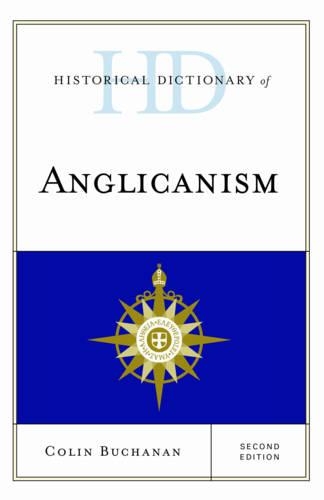
Historical Dictionary of Anglicanism
(Hardback, Second Edition)
Publishing Details
Historical Dictionary of Anglicanism
By (Author) Colin Buchanan
Bloomsbury Publishing PLC
Rowman & Littlefield Publishers
22nd October 2015
Second Edition
United States
Classifications
Tertiary Education
Non Fiction
Christianity
History of religion
Reference works
283.03
Physical Properties
Hardback
760
Width 163mm, Height 236mm, Spine 57mm
1229g
Description
Anglicanism arguably originated in 1534 when Parliament passed the Act of Supremacy, which transferred papal power over the Church of England to the king. Today, approximately 550 dioceses are located around the world, not only in England, but also everywhere that the British Empire's area of influence extended. With a membership estimated at around 80 million members the Anglican Communion is the third largest Christian communion in the world This second edition of Historical Dictionary of Anglicanism covers the history of Anglicanism through a chronology, an introductory essay, appendixes, and an extensive bibliography. The dictionary section has over 700 cross-referenced entries on important personalities, concepts and institutions, rituals and liturgy, events and national communities. This book is an excellent access point for students, researchers, and anyone wanting to know more about Anglicanism.
Reviews
Few people better are equipped to write a dictionary of Anglicanism than retired Anglican bishop Buchanan. A longstanding member of the Liturgical Commission of the Church of England and an author of classic works, he is one of a handful of people whose breadth of knowledge is sufficient for the task. This second editionnearly 150 pages longer than the first (2006)takes into account such recent controversial issues in the Anglican Communion as sexuality and the ordination of women to the episcopate. The broad topics covered include liturgical matters, ecumenical concerns, and missions, all within their historical contexts. Though there is no entry for Anglicanism per se, there is one for Anglican Communion, which classically defines it as dioceses, provinces, or regional churches in communion with the see (archbishop) of Canterbury. Buchanan gives a history of the authority and controversies involving the complicated relationship throughout the churches, and one can find entries for churches in communion with the see of Canterbury. Appendixes list bishops and archbishops of Canterbury and historical unifying documents, and there is a detailed classified bibliography of sources. Anglicans represent the third-largest group of Christians in the world, with over 80 million adherents worldwide, so most libraries will want to own this book because there is nothing else like it. Summing Up: Highly recommended. All readership levels. * CHOICE *
[This] volume is indispensable for anyone taking up the study of Anglicanism. . . .The second edition of Buchanans Historical Dictionary of Anglicanism represents an increase in size by fifty percent since the publication of the first edition in 2005. . . .The usefulness of this dictionary is that it lives up to its title. The reader will find concise but informed introductions to the whole web of Anglicanism past and present. This is the volume to go to when attempting to untangle the web of Anglican Communion officers, committees and structures. . . .For any research project, this bibliography is a helpful starting point. . . .[T]his one ought to be recommended and consulted by all scholars and students of Anglicanism. * Anglican and Episcopal History *
A great strength of this volume is the attention given to matters within the time of the active ministry of the author. Those wanting to know more about the highways and byways of the Communion will be admirably served here. * Anaphora *
Author Bio
Colin Buchanan was ordained a deacon in 1961, elected to the House of Bishops in 1990, and until 2004 he was the Bishop of Woolwich. These are just a few of the major signposts in a career that has spanned nearly five decades and included work as a pastor and teacher as well as a participant in major Anglican and ecumenical commissions and conferences. From July 2005 to July 2012 he was honorary president of the (secular) Electoral Reform Society of Britain and Ireland.
